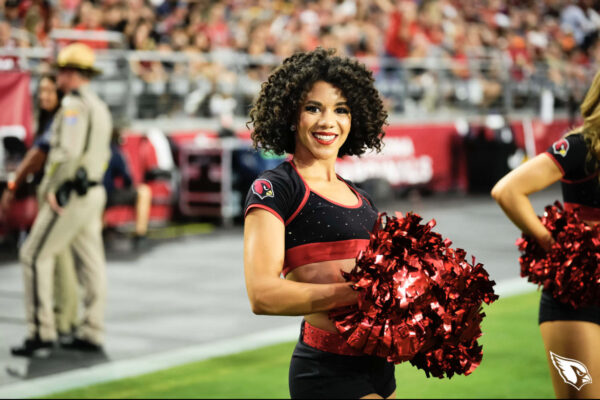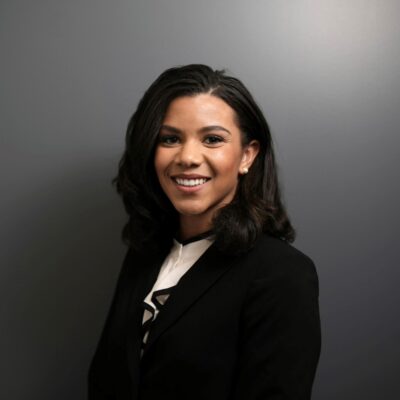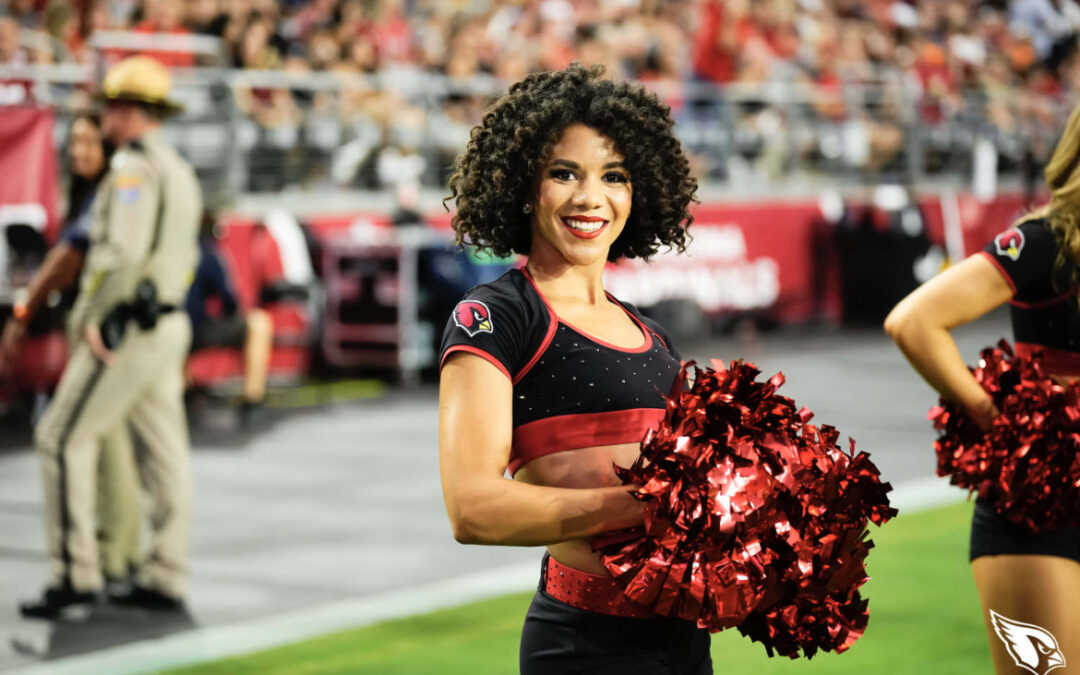Introducing our newest SciCheer, Dresden! Read on to learn more about her science and cheer background!
What got you interested in STEM?
 I started university as a Theater and Dance Major, and then realized that I wanted to utilize my full ride scholarship for a degree that would give me a stronger foundation and more career options in the future. I switched to Secondary Education with hopes to be a High School Biology teacher, until I secured an internship at Emory University. During that internship I worked in a lab and helped identify a compound that enhances lentiviral transduction. My contributions resulted in a publication in the journal of Gene Therapy, and sparked a new love and appreciation for the process and patience it takes to acquire knowledge and push the medical field forward. I immediately went back to school and updated my major once again to Biology with a Chemistry minor, started participating in undergraduate research, and started my science career.
I started university as a Theater and Dance Major, and then realized that I wanted to utilize my full ride scholarship for a degree that would give me a stronger foundation and more career options in the future. I switched to Secondary Education with hopes to be a High School Biology teacher, until I secured an internship at Emory University. During that internship I worked in a lab and helped identify a compound that enhances lentiviral transduction. My contributions resulted in a publication in the journal of Gene Therapy, and sparked a new love and appreciation for the process and patience it takes to acquire knowledge and push the medical field forward. I immediately went back to school and updated my major once again to Biology with a Chemistry minor, started participating in undergraduate research, and started my science career.
What made you try out to be a cheerleader?
After 10 years in the science field, I wanted to pick back up a dream I felt like I had let go of in college. I mistakenly thought I couldn’t do both science and dance, and dancing was my first passion. Cardinals Cheer auditions was my chance at living a dream I let go of. A dream that I hope I can inspire others is possible even while pursuing a STEM career.
Can you describe what you are working on?
Most of my day is spent behind a computer tracking data through excel and different software programs. I take the knowledge I’ve gained through my experience managing and coordinating clinical research trials and I review science protocols everyday in order to provide feedback on the feasibility of the clinical trial. Additionally, I pick out the best doctors offices around the country to conduct the trial at.
Why do you love working in STEM?
Clinical Trial Research is important to helping advance medicine and being able to provide more treatment options to patients that go to their doctor. Can you imagine going to the doctor and being told you are sick, but there’s no treatment yet? My work ensures that a clinical trial protocol is well written and conducted at the best doctors office that offers compliant research volunteers that are diverse and will produce good data so we know if a new treatment plan is safe, and how it best works.
 How does being a cheerleader help you in STEM?
How does being a cheerleader help you in STEM?
As Cheerleaders we are literally LEADing the crowd to get excited and involved in the game day experience. That same mindset carries over into my STEM career well. I’m not afraid to be a leader. I’m not afraid to be the only voice heard until I can get the rest of my colleagues excited about the work we are doing. Sometimes it takes a lot of patience and it’s hard to stay motivated and see the big picture, but thankfully I can confidently show up and lead.
How do you tackle stereotypes of cheerleaders and women in STEM?
I think breaking down negative stereotypes is so important. On many occasions I faced people in my science career that did not take me as seriously after learning I was a cheerleader, and people that would talk to me during a cheerleading appearance as if I had no education and all I did was dance. Understanding that stereotype is out there can only be combated through SHOWING people that is not true. I just calmly explain to those that only think I cheer about my science career and how much I’ve contributed to changing their doctors office visits. For those in science who may take me less seriously, I just continue to show up and work hard and provide a real life example that their stereotype does not apply to me.
Favorite science experience?
Can I somehow make “everything I’ve ever done” my answer? I love when the results of a clinical trial are published and changes the way doctors run their practice for the better. Over the years my work has helped change the way providers screen for Hepatitis C, allowing more people who were unaware of their potential exposure to get screened and cared for early. It has contributed to helping non-insured or underinsured patients get access to Hepatitis C treatment when the first oral pill became available to cure their disease. It has helped educate Primary Care Physicians (PCPs) on how to treat disease that historically would be handled by a specialist, but due to better access to medicine can easily be treated by a PCP. I have helped enhance lentiviral transduction in research laboratories, and also seen families’ lives changed as experimental oncology treatment was a last resort and it worked! I truly enjoy making the world better through science!
Can you give us a fun fact?
I would describe myself as being introverted. I’m very good at being outgoing and “extroverted” when the situation calls for it, but deep down I really want to be sitting in bed reading a book, and learning about something new.


Wow, this is such an inspiring blend of rigorous clinical trial work and enthusiastic cheerleading! Its amazing how being a LEADer on the field translates to leading in STEM with such determination. While I completely respect the serious science and the fight against stereotypes, I cant help but imagine the hilarious looks Id get if I showed up to a science meeting in full cheer gear! Kudos to calmly dismantling those preconceived notions – it takes real skills to keep moving forward with a straight face! And those big picture moments must be worth more than any pom-pom! Keep cheering on science, you rock!
This was such an inspiring read! It beautifully blends her passion for clinical trial research with her unique background in cheerleading, showcasing determination and the power of science in making real-world impacts. Truly inspiring!
Wow, this is such an inspiring read! Who knew leading a crowd and reviewing science protocols could be so closely related? The cheerleader leader analogy is *peak* STEM strategy. And facing stereotypes? Just bring data! My work has helped change the way providers screen for Hepatitis C definitely outweighs any just dancing comments. Though, for real, can we get a clinical trial for better sleep patterns for overworked scientists? #DreamBigData #ScienceSleepStudy